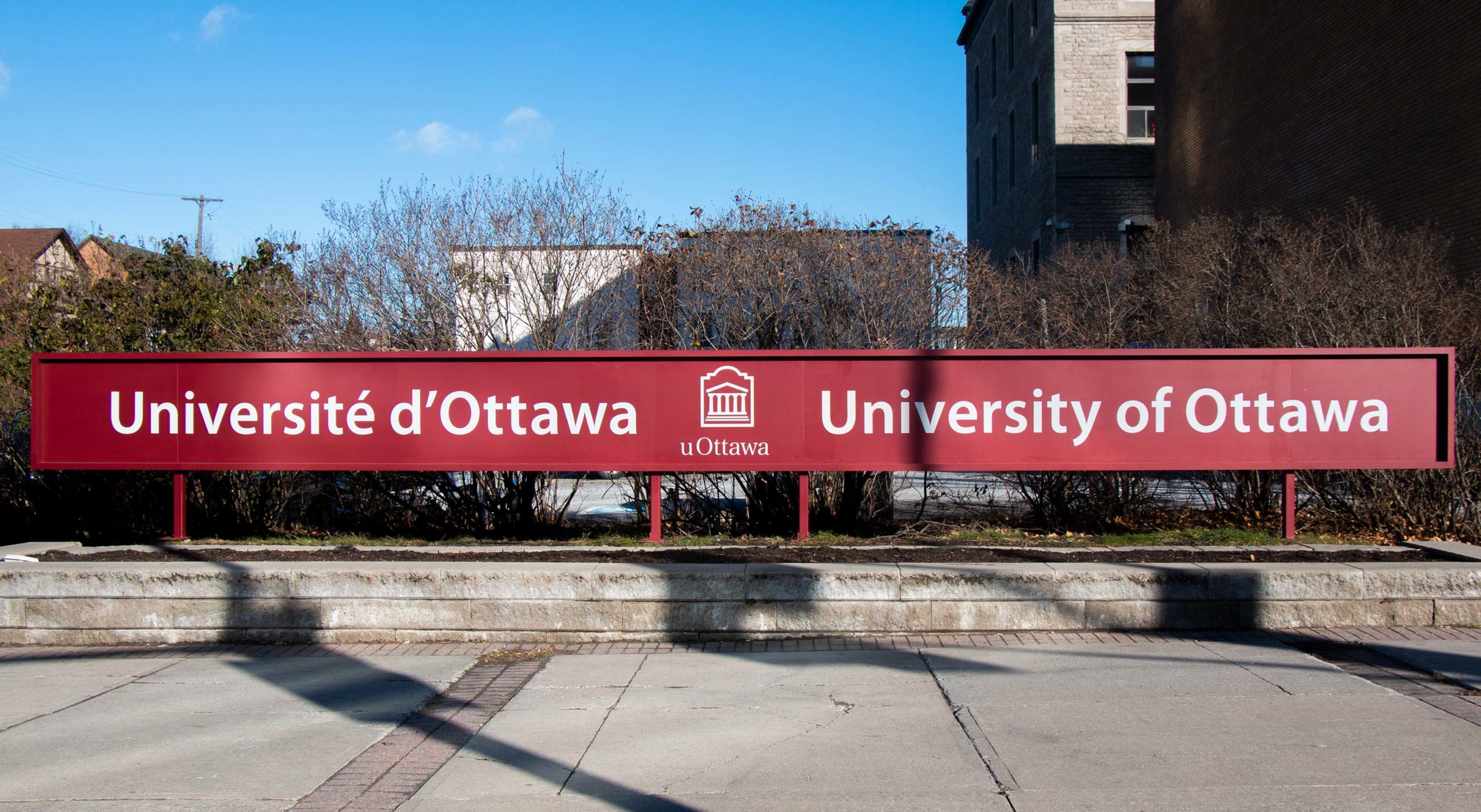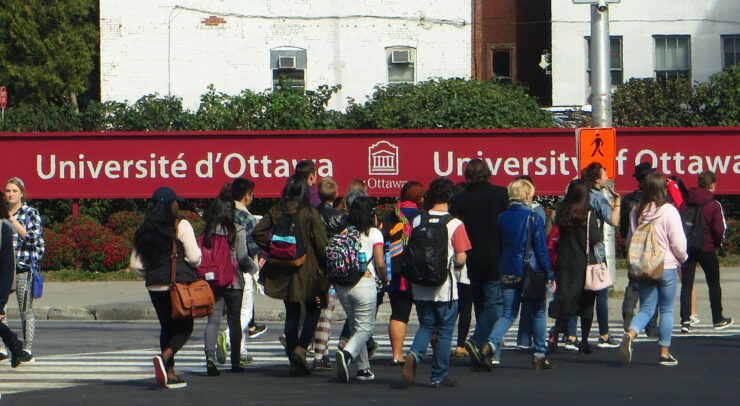“You have to work,” said professor Boulou Ebanda de B’béri. “The Scarborough Charter’s objectives have to be implemented. And it will be a long process.”
On Nov. 18, University of Ottawa president Jacques Frémont signed the Scarborough Charter, a declaration of commitment to addressing anti-Black racism and fostering inclusion in the University community. This is the latest development in the string of initiatives and committees launched to tackle this particular issue.
“Racism has no place on our campus,” said Frémont in the press conference following the first of a series of racial profiling incidents on the U of O campus in 2019. Jamal Koulmiye-Boyce, a conflict studies major and vice-president of the program’s student association, was handcuffed and detained for around two hours by campus security. An investigation into the incident would later categorize the events as racial discrimination.
In response, the President’s Advisory Committee for a Racism Free Campus (PACRFC) was launched, tasked with discussing pathways to tackling racism and promoting inclusivity on campus. In the minutes of the committee’s meeting on Nov. 12, 2019, the original name for the committee was modified to remove the phrase “Anti-Racism”: “using wording that denotes a negative connotation, such as ‘anti’, may turn people off from engaging or participating in the Committee’s work.”
In the fall semester of 2020, the academic community was divided when a professor used the “N-word” in a pedagogical context during a virtual lecture. One side, spearheaded by current and retired University of Ottawa professors, called for academic freedom — the ability to freely discuss ideas. The other side argued that the use of the word was another example of the microaggressions they had dealt with for years.
The committee formed in response abandoned the earlier concern with connotation: it was named the Action Committee on Anti-Racism and Inclusion, tasked with another discussion of the ways in which the University’s policies and structures might contribute to racist discrimination.
However, this new committee was notably missing a number of student members that had sat on PACRFC. Disillusioned by the discussions they had witnessed and the lack of tangible action, former members such as Jason Seguya formed the uRacism collective, a grassroots organization of BIPOC students. On their Facebook page, they rejected the Action Committee, opting for a more action-based approach to advocating for anti-racism.
In December of 2020, uRacism organized a sit-in at Tabaret Hall, demanding a meeting with Frémont and provost and vice-president, academic affairs Jill Scott to discuss the University’s stance on tackling anti-Black racism. Although this meeting never took place, it is obvious that the clamour for Black voices to be heard at the University of Ottawa has been growing.
Initiatives like the recent launch of the Interdisciplinary Centre for Black Health demonstrate that the University is making efforts to address its recent failures.
Now, the University of Ottawa joins more than 40 other post-secondary institutions in Canada in the signing of the Scarborough Charter, a nationwide initiative to promote inclusivity in higher learning institutions.
In an interview with the Fulcrum, professor Boulou Ebanda de B’béri, a full professor of communication and cultural studies, and the University’s special advisor on anti-racism shared his thoughts on the charter.
“I think the Scarborough Charter is a dream come true,” said de B’béri. “Signing it means that this institution is part of a network of universities, a network of best practices and advice when solving issues of inclusion. It forces the University to create structures for the management of systemic racism, to end systemic racism within its walls.”
Although de B’béri admires the Charter’s mandate, he recognizes that words mean nothing without practice.
In his term as special advisor, Dr. de B’béri has made recommendations on how the University can promote inclusivity on four fronts: the improvement of the campus experiences of BIPOC students, the hiring of BIPOC faculty, the diversification of the University’s pedagogy, and the incorporation of anti-racist and inclusive rhetoric into the University’s training practices.
“You have to work,” he said. “The Scarborough Charter’s objectives have to be implemented. And it will be a long process. It is about changing the culture. The culture of Eurocentric domination is not going to change tomorrow. It must be understood first.”
“The Scarborough Charter is just one step. You need to have people changing, engaging. For example, you must have heard of the controversy on academic freedom? It will take time to have the cultural change necessary to make sure that professors are not free to say whatever they want to say, whenever they want to say it.”
“The Scarborough Charter is just one step into the mess of the current culture. It is one step in assuring that white professors do not feel free to speak about my people’s pain without being held accountable.”





